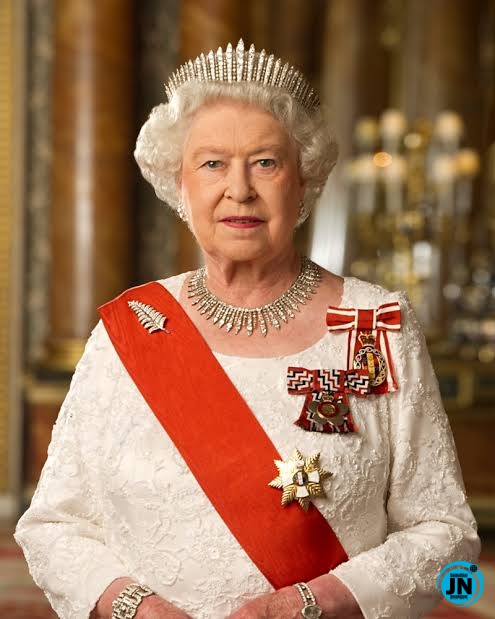Nigeria’s National Honours celebrate individuals who have made exceptional contributions to the country, spanning fields such as nation-building, humanitarian service, and cultural preservation. These prestigious awards are a testament to Nigeria’s appreciation of those who have played an instrumental role in shaping the nation’s development and strengthening its global influence.
These prestigious awards are not limited to Nigerians but are also conferred upon distinguished foreign nationals whose efforts have positively impacted the nation, reflecting the spirit of cooperation and mutual respect between Nigeria and other nations across the globe. The honorees are recognized for their significant influence in various sectors, ranging from politics and diplomacy to cultural preservation and humanitarian work.
Established under the National Honours Act No. 5 of 1964, these awards have been presented annually since October 1963, making them one of the most prestigious forms of recognition in the country. The awards symbolize Nigeria’s gratitude towards individuals who have made remarkable contributions toward the nation’s growth and global reputation.
The selection process, managed by the National Honours Awards Committee, follows a rigorous framework that focuses on criteria such as professional excellence, community service, and contributions to Nigeria’s development. Nominees are thoroughly evaluated for their work in various domains, and only those who have shown exceptional commitment to the betterment of society are selected to receive the honours.
Below are some of the most notable foreign recipients of these honours:
1. Queen Elizabeth II – GCON and GCFR

Queen Elizabeth II received the Grand Commander of the Order of the Niger (GCON) in 1969. In recognition of her enduring influence and relationship with Nigeria, she was further honoured with the Grand Commander of the Federal Republic (GCFR) in 1989, Nigeria’s most prestigious national title. Her exceptional contribution to the strengthening of diplomatic relations between Nigeria and the United Kingdom led to this high distinction, which continues to symbolize the deep-rooted ties between the two nations.
2. Nelson Mandela – GCFR

The late South African leader and anti-apartheid icon, Nelson Mandela, was awarded the GCFR in 1990. His visit to Nigeria was a historic moment, as he expressed gratitude for the nation’s unwavering support during his 27 years of imprisonment. The honour was presented by then-President Ibrahim Babangida during a state reception in Lagos. Mandela’s receipt of the GCFR symbolized the solidarity between the South African and Nigerian peoples, especially in the fight against apartheid and colonialism.
3. Muammar Gaddafi – GCFR

Libyan leader Muammar Gaddafi was conferred with the GCFR during a state banquet in Abuja in May 1997. The event, hosted by the Abacha administration, also honoured Niger Republic President Ibrahim Bare Mainassara, who accompanied Gaddafi on his diplomatic visit to Nigeria. Gaddafi’s contribution to African unity and his efforts to strengthen ties between Nigeria and Libya were recognized through this prestigious award, solidifying his role as a significant figure in African politics during his time.
4. Susanne Wenger – OFR

Austrian-born artist and Yoruba culture advocate Susanne Wenger, fondly known as Adunni Olorisha, dedicated her life to preserving the cultural heritage of the Yoruba people. Her efforts in restoring the sacred Oshun Grove in Osogbo, now a UNESCO World Heritage Site, earned her the Officer of the Order of the Federal Republic (OFR) in 2005. She also received a chieftaincy title from the Osogbo community for her cultural contributions. Wenger’s work in Nigeria remains a testament to the power of art in preserving cultural identities and bridging the gap between foreign nationals and local communities.
5. Narendra Modi – GCON

Indian Prime Minister Narendra Modi was honoured with the Grand Commander of the Order of the Niger (GCON) in recognition of his statesmanship and efforts in bolstering Nigeria-India bilateral relations. This distinction marked the 17th international award bestowed upon Modi, reflecting his global leadership stature. Modi’s leadership and diplomatic strategies have earned him admiration worldwide, and his recognition by Nigeria serves as a symbol of the strengthening partnership between the two nations.
Categories of Nigeria’s National Honours
Federal Republic Honours
1. Grand Commander of the Federal Republic (GCFR): Reserved for Presidents, Heads of State, and select foreign leaders.
2. Commander of the Order of the Federal Republic (CFR): Granted to Vice-Presidents, Senate Presidents, and other top officials.
3. Officer of the Federal Republic (OFR): Awarded for exceptional achievements in various fields.
4. Member of the Federal Republic (MFR): Recognises individuals for their contributions to society and industry.
Order of the Niger Honours
1. Grand Commander of the Order of the Niger (GCON): Often awarded to high-ranking officials and notable foreign nationals.
2. Commander of the Order of the Niger (CON): Acknowledges individuals for significant contributions to national development.
3. Officer of the Order of the Niger (ON): Given for excellence in various professional and community efforts.
4. Member of the Order of the Niger (MON): Recognises grassroots impact and community service.
Privileges of Award Recipients
Honourees receive a medal, a certificate signed by the President, and in some cases, diplomatic passports. Those with the highest honours, such as the GCFR and GCON, enjoy additional recognition, including a Presidential condolence message upon their demise. These honours serve as a lifelong tribute to the recipients’ outstanding contributions, both to Nigeria and to the global community.
These awards reflect Nigeria’s gratitude to individuals who exemplify excellence and contribute significantly to its global image and development. As Nigeria continues to make strides in various sectors, these recognitions remain a powerful reminder of the collective efforts required to achieve sustainable progress, both locally and globally.

